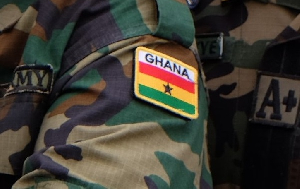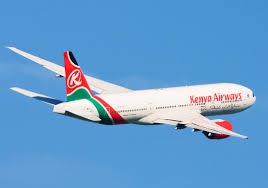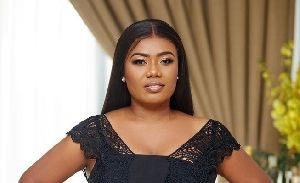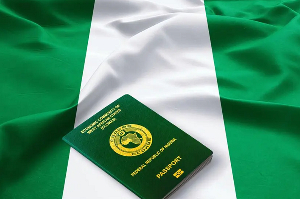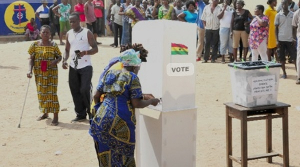- Home - Sports
- Soccer Portal
- Archived Sports News
- Sports Videos | TV
- Year In Review
- Sports Photos
- Sports Headlines
- Boxing
- Athletics
- Basketball
- Bodybuilding
- Cricket
- Golf
- Handball
- Hockey
- Martial Arts
- Tennis
- Volleyball
- Other Sports

General News of Wednesday, 21 July 1999
Source: GNA
First Islamic Girls High School commissioned
Okorase (E/R), July 20, GNA - The Deputy Minister of Environment, Science and Technology, Dr Farouk Braimah, has expressed grave concern about the low level of education among Muslim women in the country.
He said Muslim women could hardly boast of scholars, doctors, engineers, lawyers, nurses and teachers who are contributing to the nation's developmental efforts.
Dr Braimah was speaking at the commissioning of the first phase of the first Islamic Girls High School in the country at Okorase, in the Suhum/Kraboa/Coaltar District of the Eastern Region. The first phase of the project, which comprised a four-classroom block and hostel, was constructed by the Islamic Council for Development and Humanitarian Services through financial support from the Dubai Charity Association.
Dr Braimah explained that though the rights of education were granted by the Quran to Muslim women, many factors in society have militated against the education of Muslim girls in the country.
This, according to him, has had serious consequences on the development of Muslim women and had also accounted for the lack of Muslim women in positions of influence in the country.
Dr Braimah noted that one of the challenges facing Muslim women in the next millennium would be how seriously they would take their education to enable them impact positively on the development of the nation. He appealed to Muslim parents to send their daughters to school to enable them realise their full potentials for development.
The Eastern Regional Minister, Ms Patience Adow, commended the Islamic Council and the Dubai Charity Association for their achievements in the field of education, health, sanitation, agriculture and rural development.
She urged them to come out with policies and programmes as well as projects for religious and social development of the country. She advised Muslim parents not to allow the project to become a "white elephant" but to send their female children to the school to enable them unearth their God-given talents.
Ms Adow also urged the authorities of the school to ensure regular maintenance of the structure to prolong its life span. The chairman of the Islamic Council for Development and Humanitarian Services, Sheikh Mustapha Ibrahim, said Muslims in Ghana are faced with problems of inadequate schools.
He said Muslims have no reason to remain unconcerned about problems of education for their children, adding that, with the approach of the next millennium, Muslims should come together to contribute in building more schools where their children, especially the girl-child, would be trained.
The District Chief Executive for the Suhum/Kraboa/Coaltar, Mr Stephen Frimpong Manso, commended the Islamic Council for sitting the school in the district and said it would mark a turning point in the change of attitude towards the perception of the growth and development of the girl-child.
He advised parents in the district to take advantage of the opportunities the school would offer to send their daughters there to correct the gender disparities in enrolment of boys and girls in schools.


